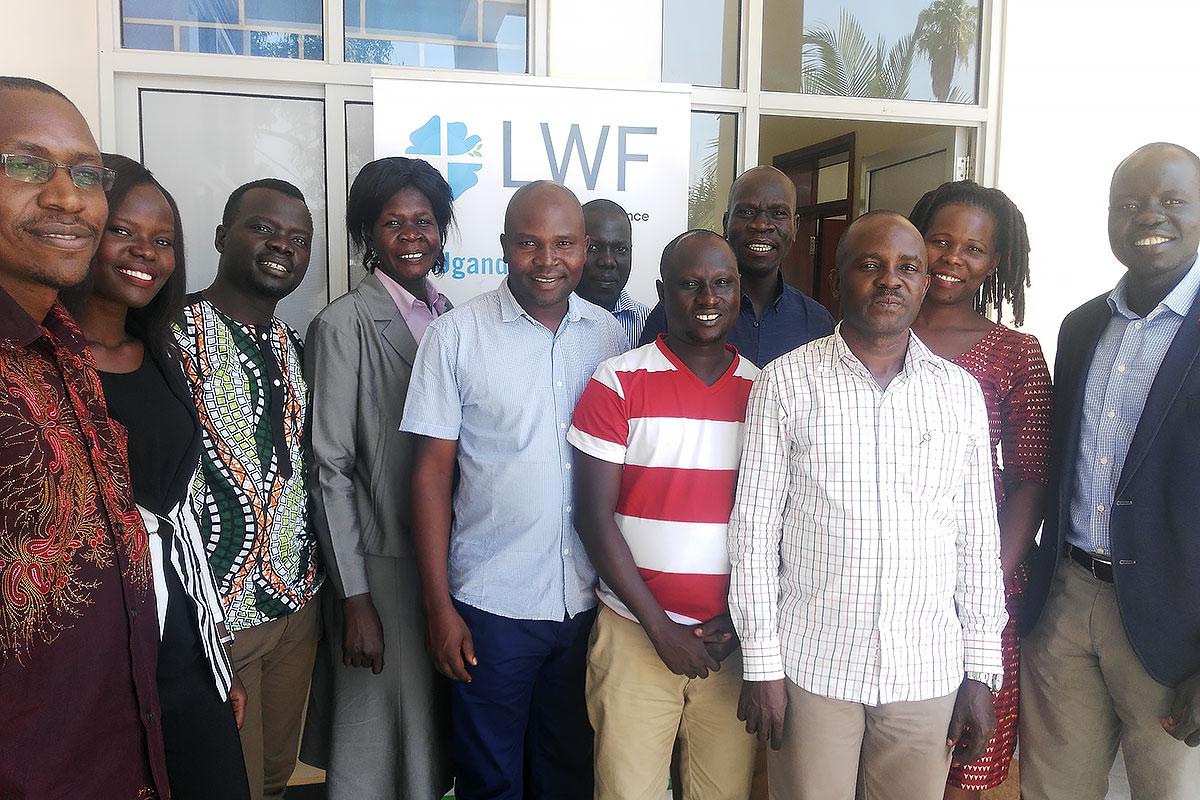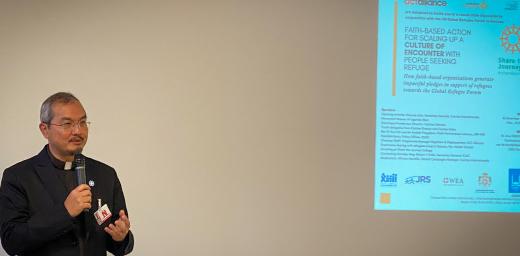Live together in dignity

Participants after the workshop in Juba, South Sudan. Photo: LWF
South Sudan Civil Society Coalition Validates Recommendations
(LWI) - Civil society has a role to play in helping to promote human rights in South Sudan, a prominent parliamentarian declared at a December training workshop held in the South Sudanese capital Juba, and organized by The Lutheran World Federation (LWF).
As 2017 winds down, the LWF Office for International Affairs and Human Rights (OIAHR), in collaboration with the LWF South Sudan Country Program, facilitated a Universal Periodic Review (UPR) training workshop in Juba.
Broad range of participants
The UPR is a unique mechanism of the United Nations Human Rights Council (OHCHR) aimed at improving the human rights situation on the ground of each of the 193 United Nations member states. Under this mechanism, the human rights situation of all UN member states is reviewed every 4.5 years. UN member states make recommendations to the country under review. The country then accepts some of those recommendations and commits to implement them to improve the situation in their country.
LWF has been engaged in supporting that process in South Sudan, besides it’s humanitarian work in the country. The human rights situation in South Sudan was reviewed by the Human Rights Council in November 2017.
The workshop, which will support civil society and government in putting the recommendations from the review into action, was attended by 45 civil society participants, members of parliament, the country’s Human Rights Commission and other stakeholders, who adopted an implementation matrix for accepted recommendations on peace and reconciliation in the country.
“Change the mentality”
Betty Oboy, a member of the committee on peace and reconciliation in South Sudan’s parliament, thanked the LWF for creating space for stakeholders to engage collectively on improving the human rights situation in the country.
Human rights are not just the responsibility of the government. Human rights are a collective and individual responsibility in which we ask: What can we do for our community to live together in dignity?
“Human rights are not just the responsibility of the government,” she noted. “Human rights are a collective and individual responsibility in which we ask: What can we do for our community to live together in dignity?” She urged the workshop participants to “take lead in our roles as individuals as well. We should change the mentality of resistance and reliance on the government.”
Internal crisis since December 2013
Justin Nyuol Yach, acting chairperson of South Sudan’s Human Rights Commission, welcomed the document produced in a prior meeting held last April which outlined a strategy to engage with the government in order to implement accepted recommendations on peace, reconciliation and development in South Sudan. He reiterated the commitment of his agency to continue working closely with South Sudan’s civil society coalition for the UPR towards that goal.
South Sudan gained independence from Sudan in 2011 after the signing of a peace agreement in 2005 that ended one of Africa’s longest civil war. Despite potential oil wealth, South Sudan is one of the world’s least developed countries and has been embroiled in internal crises since December 2013.
The training workshop was accompanied by national level advocacy meetings that debriefed relevant South Sudanese authorities on the validation workshop and lobbied them to use the implementation matrix.
Encouragement for LWF work
Meetings were held with government officials, including the president’s special advisor on education. “I know the LWF. It is a very good organization that is doing very good work in South Sudan,” said Dr John Gai, who encouraged the LWF to continue its humanitarian and peace efforts.
Lawrence Kamilo, executive director of the Office of the Minister of Justice and Constitutional Affairs, called on the LWF to assist the government’s efforts to develop a comprehensive implementation matrix for the accepted UPR recommendations.
“I look forward to your feedback on this draft implementation matrix as well as continued engagement with the LWF and other relevant stakeholders to move South Sudan’s UPR implementation forward from next year,” he said.
Following the workshop, the LWF sent a delegation to Kampala for a national symposium on sustainable development in Uganda. The South Sudan delegation keenly observed the collaboration between government and civil society. “The Uganda UPR process provides a real learning opportunity for South Sudan. We thank the LWF for this opportunity and we are looking forward to doing things differently in South Sudan after this experience,” said James David Kolok, a civil society leader.





